AUBURN — Tyler Allen and his fellow Central Maine Community College teammates are cleaning up in the sensor manufacturing market, making “millions.”
But their “Baldwin” company isn’t real. Neither are the profits.
Their simulated company is part of a new CMCC class to get business students thinking like executives.
Students set to graduate on May 14 are finishing a capstone class in which they use skills they’ve learned — accounting, marketing and financing — to compete against each other, vying to build the most successful company, business instructor Mike Henry said.
In Henry’s classroom Thursday, Allen, 22, of Turner sat at the Baldwin computer, going over charts and graphs for asset turnovers, supplies, emergency loans, sales, research and development, leftover cash and profits.
The three other Baldwin students are Jasen Washburn, 19, of Auburn; Andrea Rodrigue, 53, of Lewiston; and Judy Schneider, 38, of Lewiston.
They and students on two other teams, “Andrews” and “Chester,” have to do all parts of running a business, Henry said, including research and development, understanding the market, going into production, knowing how many products to generate based on sales forecasts and promotion.
The simulated companies are publicly traded, so students have to pay attention to how stocks are performing and keep investors happy.
If all that isn’t enough, “last night, tragedy hit,” Henry said. “They just got hit with a $10 million fine from the government, which was us,” the instructor said with a smile. “It’s an exercise to learn how to keep cash on hand.”
News of the fine Thursday produced some groans in class.
Allen said Team Baldwin makes four kinds of sensors. Two are low-tech for products (named “Boston” and “Baker”) that are mass produced at low prices. Their other two sensors are top of the line, (named “Beauty” and “Beast”), destined for customers who want the best.
According to market data, “currently, we’re the leader in both markets,” Allen said. “Forecasting is the most essential part of this whole game.”
They watch the competition, Washburn said. “If they release a product for $43, we might release our product for $42.”
Giving their report in front of the class, Team Chester members said their company finished a good year. Research and design went well, they did better than expected with sales, their material costs were low and their latest annual profit was $6.5 million, even after paying the $10 million fine.
Team Andrew members reported a rough year. Their stocks dropped. Their prices were too high, which hurt sales. They ended up with too much inventory and didn’t have enough cash to pay the fine. Next year, the company plan will be completely revamped.
Team Baldwin’s report was full of news that would make Monopoly’s Rich Uncle Pennybags dance.
Their cash flow was strong. After paying the $10 million fine, they had $22 million left. Their sensors led in sales. Their stocks went up.
“We have AAA ratings, the highest profits,” Allen said. “We expected ‘Beauty’ to stock out,” which it did. Next year, they’ll increase supply to meet demand.”
The winner of the competition will be announced next week; at the moment, the Baldwin team is leading.
After graduation, Washburn plans to go to Husson University and study marketing.
Rodrigue, who used to work for Geiger before it shut down production, was hired for an accounting job Wednesday night. After graduation, she’ll work and continue studying for advanced degrees.
Schneider plans to continue her education in business administration.
Allen plans to get a bachelor’s degree. He wants to give up his pizza joint job and become a corporate financial analyst.
He said the most important thing he learned in business classes was how to work with others who have different ideas and “how to manage those perspectives in one group.”
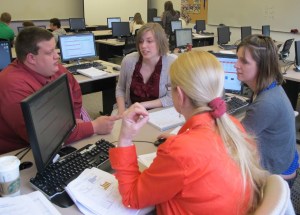
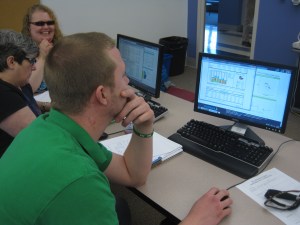
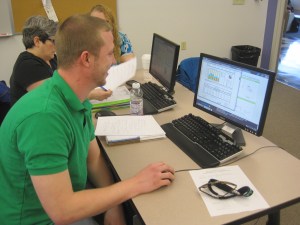
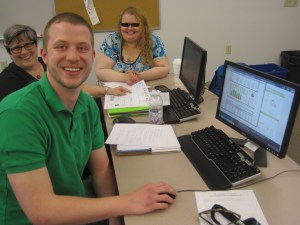
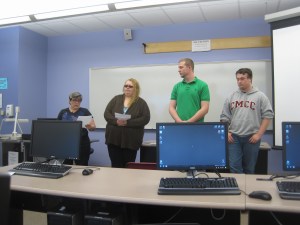
Comments are no longer available on this story